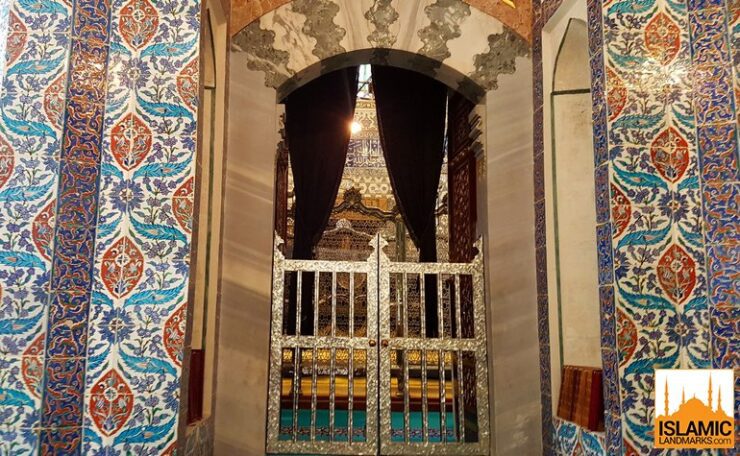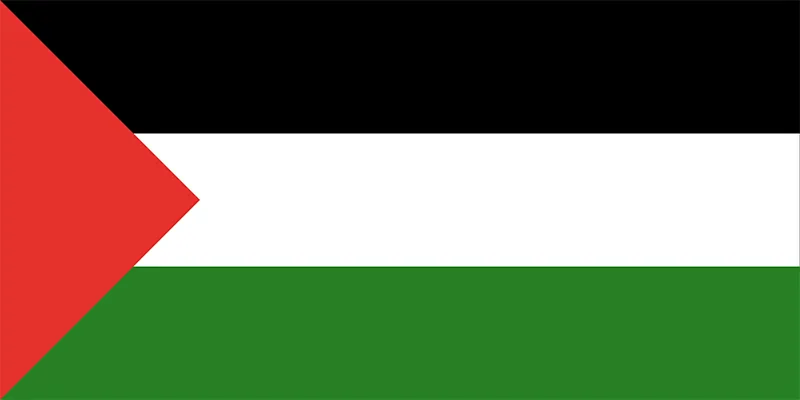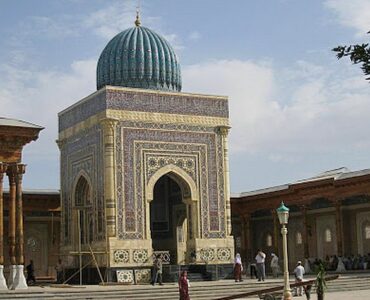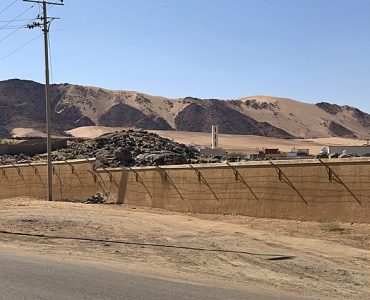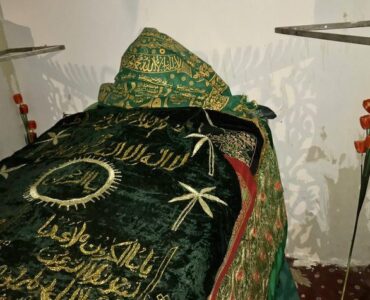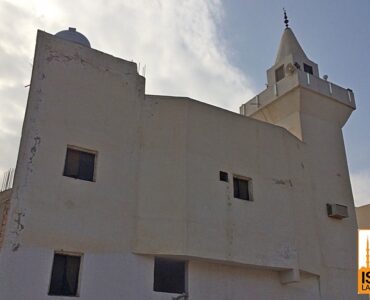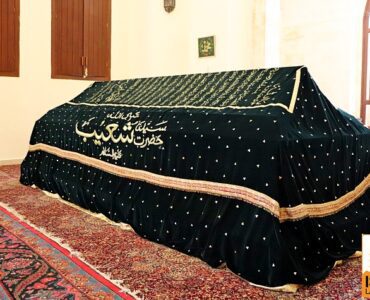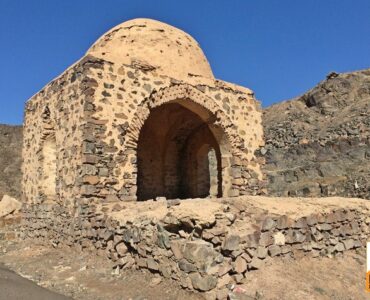This tomb, in the Eyüp district of Istanbul, belongs to Abu Ayyub Ansari (رضي الله عنه) who was a close companion of the Prophet (ﷺ). He died around 670 CE.
- His full name was Khalid ibn Zayd ibn Kulayb.
- When the Prophet (ﷺ) emigrated to Madinah, all of the Ansar were keen to host the Prophet (ﷺ) in their house. The Prophet (ﷺ) made the decision that he would stay where his camel stopped and it subsequently stopped at the residence of Abu Ayyub Ansari. The Prophet (ﷺ) stayed at his house for 7 months.
- Abu Ayyub Ansari (رضي الله عنه) had a distinguished military career and was still out in the path of Allah at the age of 80. He died during the campaign of Constantinople (674-678 CE). One of the conditions of the peace treaties signed following the siege was that his tomb be preserved.
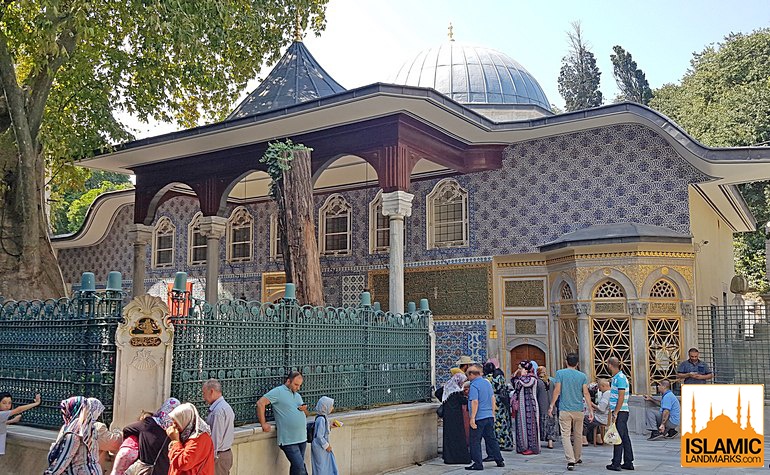

- Outside the tomb is a courtyard with a large mosque (known as the Eyüp Sultan Mosque) on the other side. The original mosque was built in 1458 CE but was subsequently destroyed, most likely by an earthquake in 1798 CE. The present replacement was commissioned in 1798 CE by sultan Selim III who ordered the whole structure other than the minarets to be pulled down and rebuilt. Filled with light, gold, pale stone and white marble, it was completed in 1800 CE.
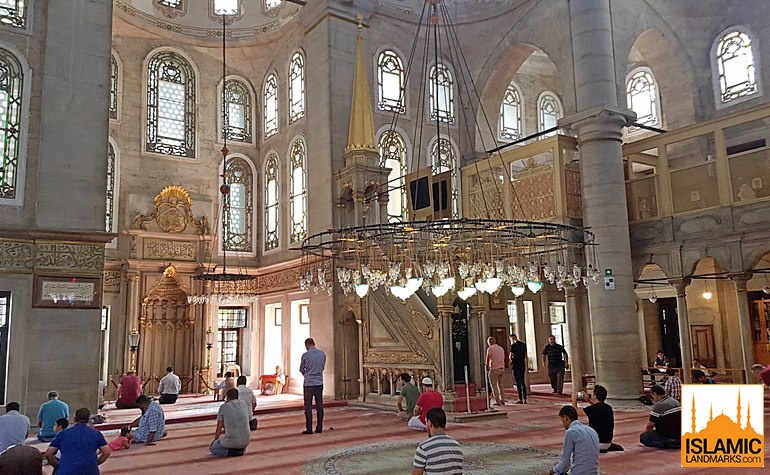

- During Ottoman times the mosque used to host the coronation ceremony of Sultans. The gate entrance to the complex has the Quranic verse, “The mosques of Allah shall be visited and maintained by such as believe in Allah and the Last Day“.
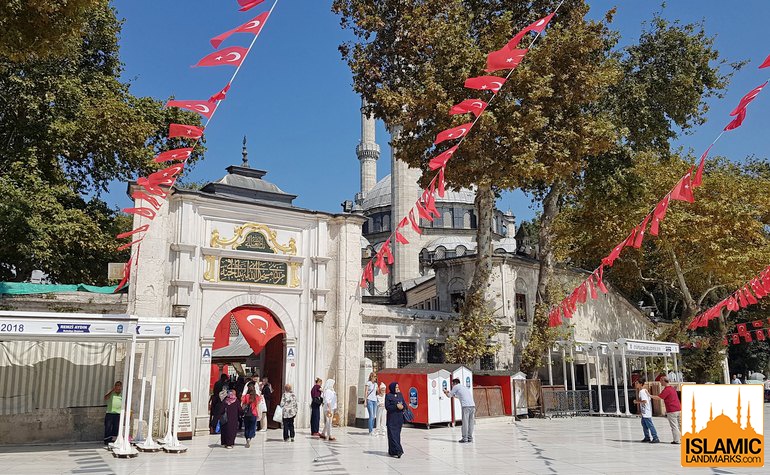

References: Works of Ibn Kathir, The rough guide to Istanbul, Wikipedia
Note that this entry has been shown for information purposes only. On no account should anybody pray to a grave or seek supplication through them as this is tantamount to committing shirk, associating partners with Allah (ﷻ)

